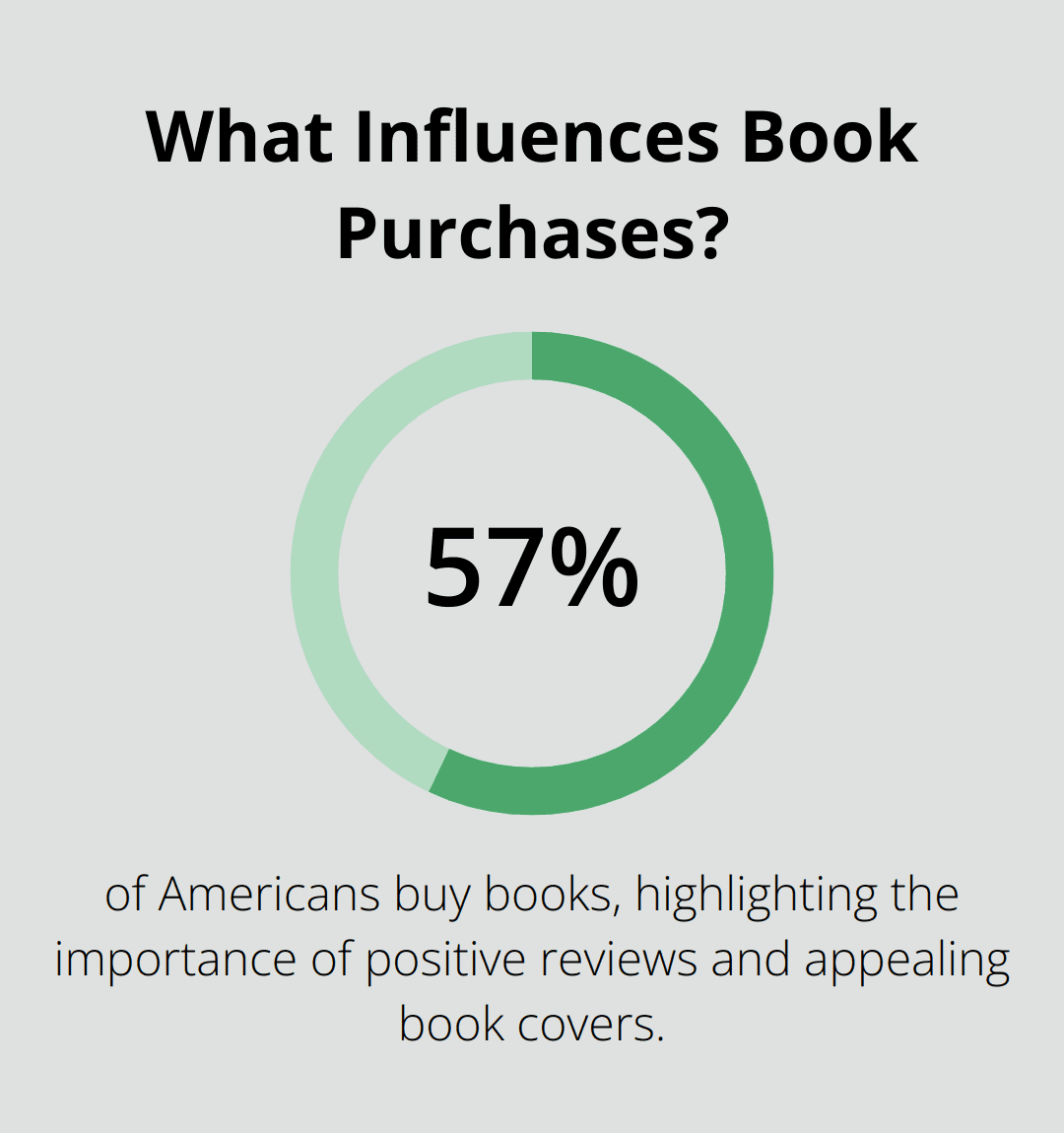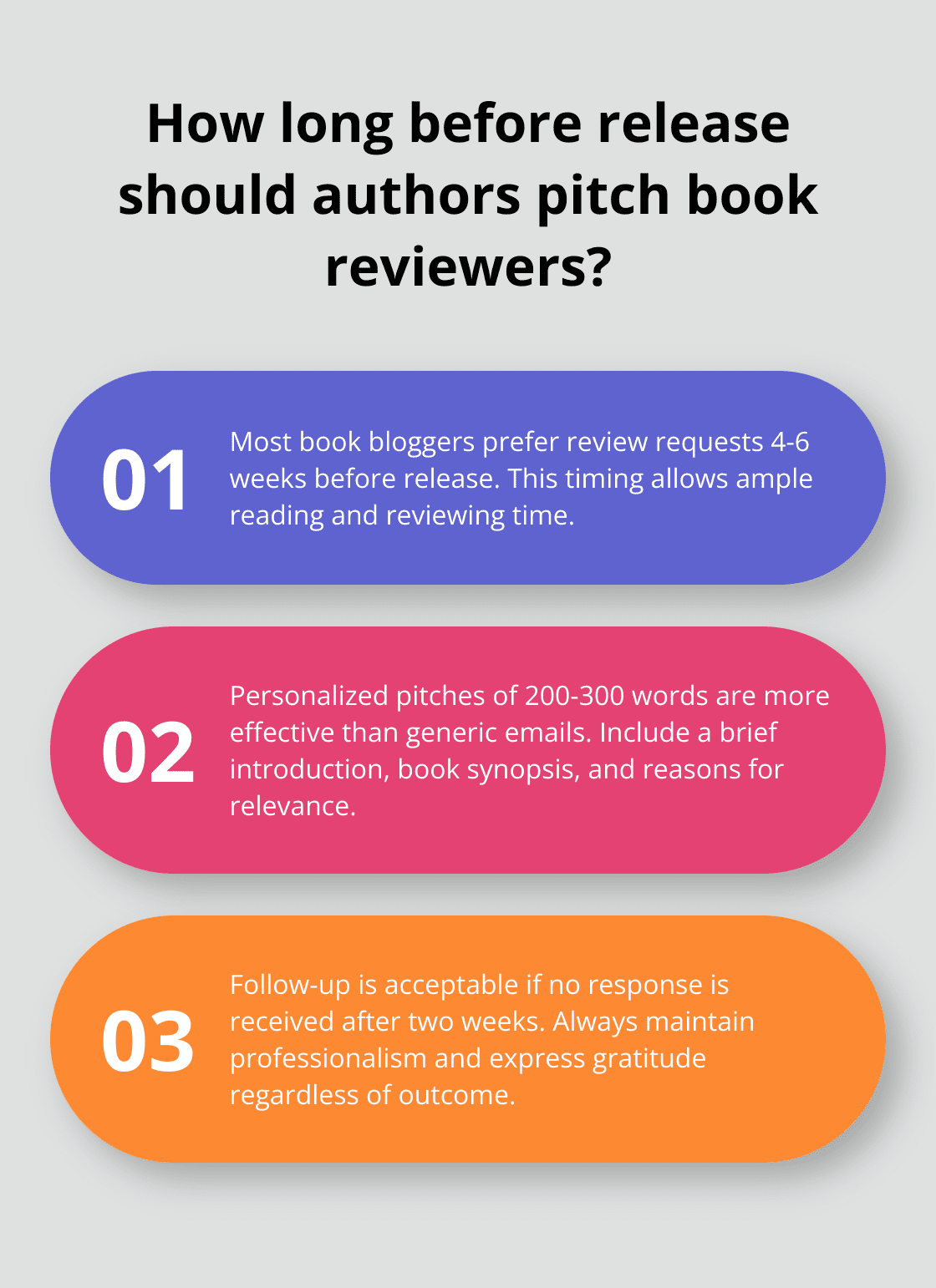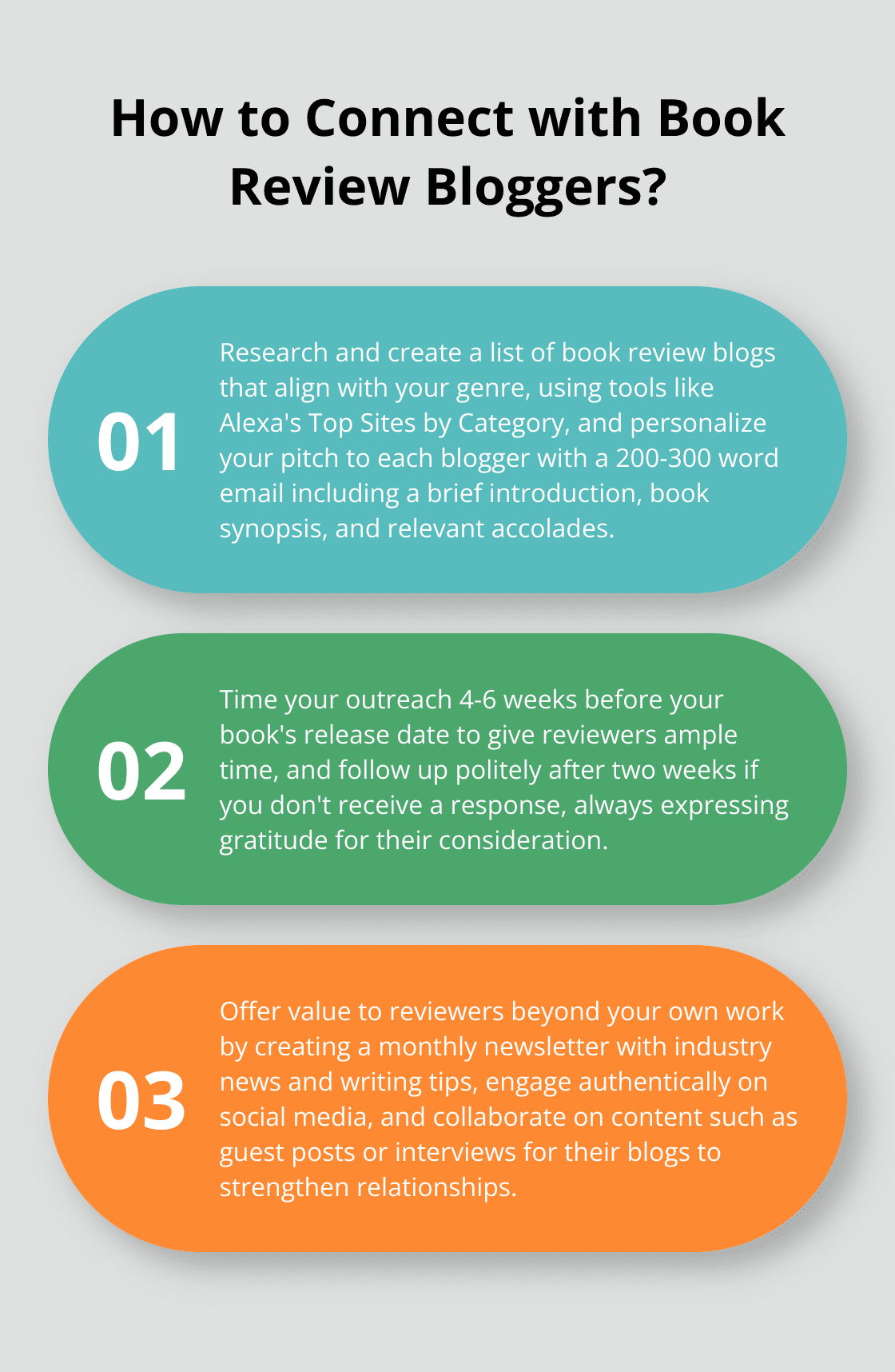At Beverly Hills Publishing, we understand the power of book review blogs in shaping reader opinions and driving book sales. Effective book review blog outreach can significantly boost an author’s visibility and credibility in the literary world.
In this post, we’ll explore strategies to connect with influential book reviewers and maximize the impact of their reviews. Whether you’re a seasoned author or just starting out, these tips will help you navigate the book review landscape and build lasting relationships with bloggers.
Navigating the Book Review Ecosystem
Types of Book Review Blogs
The book review landscape consists of diverse platforms that connect authors, readers, and industry professionals. These blogs cater to different audiences and genres, ranging from niche-specific to broad-coverage platforms.

Some blogs focus on specific genres like young adult fiction (e.g., “YA Books Central”), historical romance, or science fiction. Others cover a wide range of genres, such as the prestigious “Kirkus Reviews.” Certain blogs dedicate themselves to indie authors, debut novels, or bestsellers. Authors must identify the right reviewers for their books by understanding these distinctions.
The Power of Book Reviews
Book reviews significantly influence reader decisions and author success. A recent survey found that poor cover design is one of the most common reasons for low book sales, with 57% of Americans buying books. This statistic highlights the importance of not only obtaining positive reviews but also having an appealing book cover.
Reviews provide social proof and contribute to a book’s discoverability. Many online retailers (including Amazon) use reviews as a factor in their search algorithms. A higher number of positive reviews can improve a book’s visibility in search results, potentially leading to increased sales.
Impact on Reader Decisions
Book review blogs shape reader opinions and purchasing behaviors in several ways:
- In-depth analyses: They offer detailed perspectives on a book’s strengths and weaknesses, going beyond simple star ratings.
- Informed decision-making: Readers use these analyses to determine if a book aligns with their interests and preferences.
- Trusted recommendations: Many book bloggers have built loyal followings who trust their opinions. When a respected blogger endorses a book, it often results in increased interest and sales.
For example, when the popular blog “Smart Bitches, Trashy Books” features a romance novel, authors often experience a noticeable boost in sales.
Leveraging Book Review Blogs
Authors can maximize their book’s visibility and appeal by targeting the right reviewers and leveraging their influence. This approach enhances a book’s chances of success in a competitive market.
To effectively navigate the book review ecosystem, authors should:
- Research blogs that align with their book’s genre and target audience
- Personalize their outreach to each blogger
- Build relationships with reviewers beyond just pitching their book
The next chapter will explore strategies for crafting an effective outreach plan to connect with these influential book reviewers.
How to Craft a Winning Book Review Outreach Strategy
Identify Your Target Reviewers
Start by creating a list of potential book review blogs. Use search engines, social media platforms, and book-related websites to find bloggers who review books in your genre. Pay attention to their review policies, submission guidelines, and the types of books they typically cover.

Alexa’s Top Sites by Category ranks websites based on traffic. For book-related blogs, you can find a comprehensive list that includes popular sites like Goodreads, BookBrowse, and genre-specific blogs.
Tailor Your Pitch
Once you’ve identified suitable bloggers, craft a personalized pitch for each. Generic, mass-produced emails often get ignored. Instead, show that you’ve read their blog and understand their preferences.
In your pitch, include:
- A brief introduction about yourself and your book
- Why you think your book would interest their readers
- A short synopsis (2-3 sentences)
- Any accolades or notable endorsements
- Links to your author website and social media profiles
Try to keep your pitch concise – 200-300 words is ideal.
Perfect Your Timing
The timing of your outreach can significantly impact its success. Most book bloggers prefer to receive review requests 4-6 weeks before the book’s release date. This gives them ample time to read and review the book.
However, if your book is already published, don’t let that deter you. Many bloggers are open to reviewing books that have been out for a while, especially if they align closely with their interests.
Master the Follow-Up
If you don’t hear back after your initial pitch, it’s okay to follow up – but do so judiciously. Wait at least two weeks before sending a polite reminder.
Building relationships with book reviewers is a long-term process. Be patient, professional, and always express gratitude for their time and consideration, regardless of the outcome.
As you refine your outreach strategy, you’ll find that building strong relationships with book reviewers goes beyond just pitching your book. In the next chapter, we’ll explore how to nurture these connections and create lasting partnerships that benefit both authors and reviewers. Consider incorporating virtual book tours into your strategy to boost your visibility and engage with readers online.
Nurturing Lasting Connections with Book Reviewers
Become a Valuable Resource
One effective way to build rapport with book reviewers involves offering them value beyond your own work. Share interesting industry news, recommend other books you enjoy, or provide insights into your writing process. This approach positions you as a knowledgeable and generous member of the literary community.

You could create a monthly newsletter for reviewers featuring upcoming releases in your genre, writing tips, or behind-the-scenes glimpses of your author life. This regular communication keeps you on their radar and demonstrates your commitment to the broader literary ecosystem.
Engage Authentically on Social Media
Social media platforms offer excellent opportunities to connect with book reviewers on a more personal level. Follow their accounts, like and comment on their posts, and share their content when relevant. However, authenticity is key – avoid generic interactions and instead focus on meaningful engagement.
A study by Sprout Social found that 70% of consumers feel more connected to brands whose CEO is active on social media. As an author, you are your own brand. Regular, genuine interactions on platforms like Twitter or Instagram can significantly strengthen your relationships with reviewers.
Show Genuine Appreciation
Reviewers invest considerable time and effort into reading and critiquing books. Building goodwill with reviewers is crucial for authors. When a reviewer features your book, express your gratitude promptly and sincerely. A personalized thank-you note or email can make a lasting impression.
Consider featuring positive reviews on your author website or social media channels. This action not only shows appreciation but also helps promote the reviewer’s work, creating a mutually beneficial relationship.
Collaborate on Content
Offer to contribute guest posts or participate in interviews for reviewers’ blogs. This provides them with fresh content and gives you additional exposure. Topics could range from writing tips to discussions about your genre or the themes in your books.
Collaborate on content to strategically think about and practice collaboration with others within and outside various disciplines. Content collaboration strengthens your relationship with the reviewer and potentially reaches a wider audience.
Attend Literary Events
Literary events (virtual or in-person) provide excellent networking opportunities. Attend book fairs, writer conferences, or online webinars where you might encounter reviewers. These face-to-face interactions can solidify online connections and lead to more meaningful relationships.
A report by the Event Marketing Institute found that 74% of event attendees have a more positive opinion about the company, brand, product or service being promoted after the event. While this statistic refers to corporate events, the principle applies to author-reviewer relationships as well.
Final Thoughts
Effective book review blog outreach empowers authors to expand their readership and establish their literary presence. Authors who research suitable blogs, craft personalized pitches, and build genuine relationships with reviewers enhance their visibility and credibility. These strategies form the foundation of a successful outreach campaign, with optimal results achieved when authors contact reviewers 4-6 weeks before book release.

Building lasting connections with book reviewers extends beyond a single review. Authors who engage authentically on social media, collaborate on content, and show genuine appreciation foster mutually beneficial relationships. These connections lead to ongoing support, valuable insights, and increased exposure within the literary community (which can significantly impact an author’s career trajectory).
We at Beverly Hills Publishing encourage authors to implement these book review blog outreach strategies. Our approach combines publishing with strategic branding and marketing to propel authors beyond traditional publishing. Authors who leverage the power of book review blogs alongside our services can elevate their visibility and build strong brand identities.















































































































































































































































